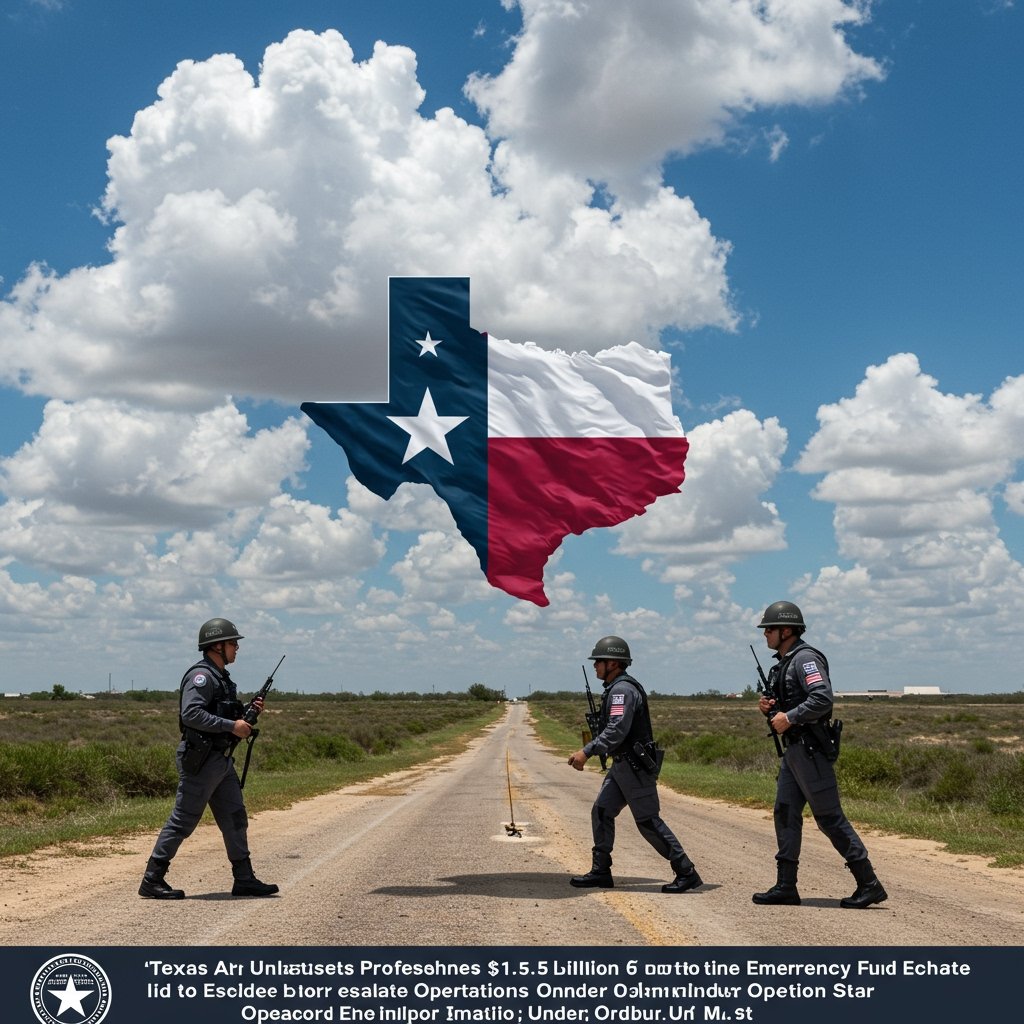Texas Legislature Allocates Significant Emergency Funding for Border Security
AUSTIN, Texas – The Texas Legislature on Friday took decisive action to significantly escalate the state’s border security efforts, approving an emergency appropriation of $1.5 billion. This substantial funding boost was incorporated into the state’s foundational budget bill, HB 1, via an amendment passed during legislative proceedings. The approval marks a critical moment in the state’s ongoing, multi-faceted response to migration trends and border enforcement challenges along its extensive boundary with Mexico.
With this latest injection of funds, the total state investment allocated towards border operations under the controversial initiative known as Operation Lone Star in the current fiscal year surges to a figure exceeding $7.3 billion. This underscores the state leadership’s commitment to dedicating considerable financial resources to enhance physical barriers, deploy state personnel, and implement technological surveillance measures.
Governor Greg Abbott, a vocal proponent of the state-led border security surge, swiftly lauded the legislative approval. In statements following the vote, Governor Abbott articulated the strategic priorities for deploying these newly appropriated funds. He indicated that the $1.5 billion would be leveraged to accelerate barrier construction along critical segments of the border. This construction includes various forms of physical impediments designed to deter illegal crossings and channel migrants towards official ports of entry. The Governor’s plan also detailed an enhanced presence of Texas National Guard personnel along particularly active and challenging sectors, specifically naming areas near the border cities of Eagle Pass and Del Rio. These regions have frequently been focal points for high volumes of attempted illegal entries and encounters with migrants and criminal elements.
Furthermore, Governor Abbott highlighted the planned expansion of aerial surveillance capabilities, specifically through the acquisition and deployment of new drone technology. These unmanned aerial systems are intended to provide real-time intelligence, track movements across the border, and assist law enforcement and military personnel on the ground in interdicting illegal activity. The integration of advanced technology like drones represents a significant component of the state’s strategy to monitor remote and difficult-to-access areas along the vast border.
Operation Lone Star: Context and Criticism
The allocation of these emergency funds comes within the broader context of Operation Lone Star, a state-led joint effort between the Texas Department of Public Safety (DPS) and the Texas Military Department launched in March 2021. The stated objectives of the operation are to deter and apprehend individuals attempting to cross the border illegally, combat human trafficking and drug smuggling, and counter other transnational criminal activity. Since its inception, Operation Lone Star has involved the deployment of thousands of National Guard troops and DPS troopers to the border region, alongside the construction of state-funded border barrier infrastructure.
The operation has been met with mixed reactions. While proponents argue it is a necessary measure to secure the border in the face of perceived insufficient federal action, critics have raised significant concerns regarding its cost, effectiveness, humanitarian impact, and transparency. The latest emergency appropriation has reignited this debate within the state legislature and across Texas.
Among the vocal opponents of the increased spending is State Senator Roland Gutierrez, who represents a large border district encompassing Uvalde and parts of Eagle Pass. Senator Gutierrez, a Democrat, voiced strong criticism regarding the $1.5 billion appropriation. He argued that the massive spending lacks adequate transparency, questioning how exactly the funds are being allocated and whether there is sufficient oversight to ensure accountability and effectiveness. More fundamentally, Senator Gutierrez contended that the state’s focus on enforcement and physical barriers through Operation Lone Star fails to address the underlying or root causes of migration, such as economic instability, violence, and political upheaval in migrants’ home countries. Critics like Gutierrez argue that a more comprehensive approach involving diplomatic engagement, humanitarian aid, and addressing the factors driving migration would be a more sustainable and effective long-term strategy than solely focusing on border militarization and detention.
Legislative Process and Future Implications
The approval of this emergency funding as an amendment to HB 1, the primary state budget bill, highlights the urgency with which state leaders view the border situation. Emergency appropriations are typically reserved for unforeseen circumstances requiring immediate funding outside the normal budgetary cycle. Attaching it to HB 1 allowed for a relatively swift legislative process to make the funds available.
The expenditure of over $7.3 billion on Operation Lone Star within a single fiscal year positions Texas as a significant independent actor in U.S. border policy, often pursuing strategies that diverge from or openly challenge those of the federal government. The continued heavy investment signals that Texas intends to maintain a robust state-level presence and infrastructure along the border for the foreseeable future, regardless of federal policies or funding.
The debate surrounding the allocation reflects broader national discussions about border security, immigration reform, and the division of responsibilities between state and federal authorities. As Texas continues to channel vast resources into Operation Lone Star, the effectiveness and long-term consequences of this substantial investment will remain subjects of intense scrutiny and political debate.






